|
Hope you will enjoy this wonderful sad Prelude No. 5 by Juozas Naujalis, Lithuanian Romantic composer! I used Nancy sample set by Piotr Grabowski on my Hauptwerk setup. Thank you for your support! You get early access and I get to keep going.
My Hauptwerk setup: https://www.organduo.lt/tools.html Buy me some coffee: https://www.buymeacoffee.com/organduo
Comments
Hope you will enjoy Prelude No. 4 by Juozas Naujalis who was Lithuanian Romantic composer. I played it on Nancy sample set by Piotr Grabowski and my Hauptwerk setup.
Thank you for your support! You get early access and I get to keep going. Buy me some coffee: https://www.buymeacoffee.com/organduo
Vidas: Hello and welcome to Secrets of Organ Playing Podcast!
Ausra: This is a show dedicated to helping you become a better organist. V: We’re your hosts Vidas Pinkevicius... A: ...and Ausra Motuzaite-Pinkeviciene. V: We have over 25 years of experience of playing the organ A: ...and we’ve been teaching thousands of organists online from 89 countries since 2011. V: So now let’s jump in and get started with the podcast for today. A: We hope you’ll enjoy it! Vidas: Hi guys! This is Vidas. Ausra: And Ausra. V: Let’s start episode 659 of Secrets of Organ Playing Podcast. This question was sent by Eduardo, and he writes, Greetings, Recently I found about historical improvisation and I stumbled upon your dissertation "Improvisation of keyboard preludes in the style of JS Bach: A practical method comprising techniques derived from selected keyboard works" And it looks exactly what i'm looking for at the moment, but I can't find a complete version of it, I just found the index. Is there a way I can get the complete one? Also , In your webpage you mention a Keyboard Prelude Improvisation Mini Course but the link is dead. Can I still join the Course? Looking forward to hearing from you, Eduardo Villalobos V: You remember Ausra, how we wrote dissertations? A: Yes, I remember. V: It was so long ago. A: It was probably really the most horrible work I have ever done. V: Horrible meaning quality bad, or something different? A: Well, I’m not a writer. It was easier for me to play for degree recitals, including lecture recital, than to write one dissertation. V: Mm hm. A: Simply, I’m not the researcher type. V: I was kind of lucky that I was able to select a pedagogical approach for my dissertation. And you were my guinea pig, remember? A: Yes I remember. V: You tried my exercises. A: Yes, some of them. I think I stuck at the beginning. But I haven’t finished them. V: Right, right. A: I think you selected a good approach, because I heard from other people who said a nice things about your dissertation. And if Eduardo wants to get it, I think all of them are in the United States in the place where you can order any dissertation. But you cannot get them for free or course, you have to pay. V: But he wants to join the course, which is Keyboard Prelude Improvisation Mini Course, I converted that dissertation into two things here in Lithuania. The first chapter of it is this mini course, and the rest of it is Prelude Improvisation Formula Course over I think 16 weeks long or so. So basically, it is still available, this free mini course introduction. People can learn one specific way to improvise a prelude, and if they are still interested, they can go into longer course like Prelude Improvisation Formula. So I will put the link into the description of this conversation and people can click and go to the registration of that mini course. A: Okay, but is the link dead? Have you checked it? V: It was dead. I was migrating my mini courses from Mailchimp to Convertkit. A: So you need to revise it, update somehow. V: And I did, yes. Here it is. A: Okay. V: And Eduardo wrote to me that he was able to access it now. So, excellent. I think this approach really works because what I did is took models from early music collection like Wilhelm Friedemann Bach’s Klavierbüchlein - not entire Büchlein but just selected preludes from it. And analyzed and dissected each prelude into different, different compositional elements that Bach uses, and help people to internalize them and to adapt them into new situations, enabling them to improvise their own preludes based on these models. What do you think, Ausra? A: Yes, I think that’s a really good approach if you want to improvise in historical styles. V: Yes. If you want to take as a model preexisting musical material, so to say. There are many other approaches. You could take any piece that you are playing actually, and take a fragment of that piece, and that could become a basis of a new prelude, right? A: Sure. V: I’ve heard Sietze de Vries improvise, for example, based on the first trio sonata by Johann Sebastian Bach, first movement, that famous theme in the right hand part, remember? A: Yes, I know it. V: It becomes the basis of the counterpoint, contrapuntal theme - like a fugue basically. Which Bach also treats, but in a different key. Bach uses E flat major, and Sietze de Vries I think uses C major key. So it’s a really different approach, but similar material. Very recognizable. Such a pleasure to listen to it. A: Sure, he is really master of improvisation. V: Yeah, but approach is the same that probably all the improvisers in historical styles use - they take preexisting material and dissect it. And take what they want out of it. At the end of that course, Prelude Improvisation Formula for example, I devise like a longer prelude with other sequences and cadences and modulations to tonal plan that Bach wouldn’t have used in a shorter prelude. So if somebody completes this course, then the last chapter would be a really nice progress and result, I think. A: True. But you know for example, I always feel sort of uneasy about the things that I was taught in general, in other musical subjects. For example, in composition classes or any other academic classes - you were not supposed to plagiarize something. For example in the composition class… V: Plagiarize? A: Yes. We were told to create original things, to compose our original things, and everything should be new and made with innovation that nobody would have done that before. And all this historical improvisation approach sort of teaches the other way around. That you have actually to plagiarize… V: Plagiarize. A: Yes. And you have to repeat things that you have already done. Because if you are changing a key but keeping still the same melody, still the same melody. Of course, you treat it in another genre, for example in the fugue, not in like trio, trio sonata - but still, sort of it’s hard to digest things like this. V: Tell me this, for example. What do you admire more - French style improvisation that let’s say Pierre Cochereau, Olivier Latry improvises at the end of the mass at Notre Dame? Of course it was in the past, no longer available, but you can still get many videos on YouTube. Or let’s say, contrapuntal improvisation, the one that let’s say Edoardo Bilotti, William Porter, or the same Sietze de Vries does. A: Well you know, you are asking a very hard question. V: Why? A: Because if I tell you the truth, I don’t think you will be happy with it. V: What is the truth? A: What I like. V: Sure! Tell me. A: Okay. Then I prefer the French style. V: French style, you prefer French improvisation… A: Yes. V: ..over… A: Over that… V: Contrapuntal improvisation. A: Yes. V: Can you articulate why? A: Well because I can comprehend the French style better. Because I’m imagining myself still being able to do something in that kind of manner. V: And then if you… A: And I could not do the contrapuntal improvisation at all, unless I would write it down and memorize, and then pretend I’m improvising. And actually I’ve met many organists, especially in the United States, especially among ladies who actually did that, and call themselves improvisers. So of course I’m not referring to Porter or Edoardo Billotti, I’m sure they can do that very well without writing it down. V: Well, you touched a very interesting subject about women in improvisation. Over this year I think, in the last year, there have been series of articles in The American Organist magazine, TAO, by Pamela Ruiter-Feenstra, our former professor. And she interviewed many organists, mostly women but some of them were men, about various aspects of why women are not so into organ improvisation in general, and as you noticed, yes there are mostly men in this art rather than women. And in competitions as well, too. Especially in Europe - mostly men, not so much women. And jurors; also men, not women. So when you think about French improvisation, probably the only lady who comes to mind is Sophie-Veronique Cauchefer-Choplin, right, who was here in Vilnius a few years ago. A: Well, but I think we have more, maybe not as well-known ladies as brilliant organists and improvisers, in French style of course. V: There is a need for women to step up and start improvising, and it’s not easy. It doesn’t have to be sophisticated at first. That’s the big hurdle that everybody has to understand, you don’t start by running marathon. You start by probably crawling on the floor, then you stand up, or sit up, actually, then you stand up, then you start walking, then you start running a little bit like 100 meters, then half a mile, then one mile, then five miles, 10 kilometers, 20 kilometers, and then entire marathon. It’s a lifetime of achievement probably, lifetime journey. But the journey is probably more important than the result I think, than the destination, don’t you agree, Ausra? A: Yes, probably you are right. But you know, it would be very hard to start that when you are, sort of at your middle age. Because I think we were just taught from our childhood in a very different manner. Because we grew up in the Soviet times when even improvisation could cause you trouble. Because improvisation was connected to jazz, and jazz was connected to United States, and United States was sort of complete evil…. V: Yes. A: … and there was no way we could learn how to improvise as kids. And we were taught strictly by the rules. And I think that if we have spent as much time learning to improvise as we spent learning the real repertoire, we would be real masters at improvising in any given style. V: That’s what Sietze deVries did as a kid. He took a hymnal, he said in one of his interviews, in multiple interviews probably, he would open a hymnal and start playing those psalms, genuine psalms in one key, in another key transposing - probably very simple at the beginning. But as he progressed, he became more fluent with it. But one thing I can guarantee, Ausra. That - you remember what I did before with those psalms? I would probably add, add a second voice to the chorale melody, note against note like a first species… A: Yes, I remember. V: ...counterpoint. Very simple approach, right? You only use consonant intervals: thirds, sixths in parallel and contrary motion, and if you want octaves and fifths in contrary motion. No parallel motion. So basically those sweet-sounding intervals. And I guarantee that you could do it. A: Of course I could do it. V: And that’s the starting point. A: But really I don’t see… V: If you can do step one, there is no reason you couldn’t do step two. A: Well I know all that, but you know, I’m not a child anymore and I don’t think it’s worth spending as much of my time, because the result wouldn’t be great - wouldn't be what I imagine if I had started those things 30 years ago, for example. V: Well, I didn’t start 30 years ago. What about my result? Do you like my result? (laughs) Be honest. A: Yes, sometimes I do. (laughs) V: So? A: Not always. V: Yes. So you also have the same background as me. Maybe less, you are less optimistic than me, right? You are sort of down-to-earth. A: I have no fantasy, I have no good memory. Well… V: But you have quicker thought processes. You think faster than me. That’s for sure, right? A: I don’t know. V: If you think faster, then you can actually improvise better than me, because you can compose in your head in the moment of performance faster than me. A: But I think you have better technical facilities. V: Technical facilities? A: Yes. V: Yes, if you think about playing trio sonatas, right away from your imagination. But you don’t need those facilities when you’re playing in two voices, let’s say without the pedal. That’s beautiful. A: Anyway, I will not improvise in any historical style. V: But would you want… A: Although I have tried for example, Pachelbel's style or something like this, but I see no point why I should do it. If I will start improvising it will probably be something in the style of Demessieux. V: And that’s not a bad idea. A: Because when I play her pieces, I think that I could improvise something like that in a mode. V: Sometimes when we play modern music we think it’s easier to improvise than to learn the notes, right? A: Sure. And I learn her pieces, they are not hard of course, but sometimes I’m playing different notes than they are written. And it still sounds very nice and in the same style. So that’s how I thought I might improvise similar style. V: Okay, let’s make a deal. You improvise like Demessieux one video, and I improvise like Sietze deVries one video, okay? A: Yes, but this will be only after I will perform her pieces. V: Yes, after June 12. A: After June 12. V: Yeah, marked in calendar. And that would be great. Let’s look forward to it. Okay guys, this conversation has been going for 19 minutes now, wow! Maybe we should stop. A: Okay. V: Okay, please send us more of your questions. We love helping you grow. And remember, when you practice, A: Miracles happen. V: This podcast is supported by Total Organist - the most comprehensive organ training program online. A: It has hundreds of courses, coaching and practice materials for every area of organ playing, thousands of instructional videos and PDF's. You will NOT find more value anywhere else online... V: Total Organist helps you to master any piece, perfect your technique, develop your sight-reading skills, and improvise or compose your own music and much much more… A: Sign up and begin your training today at organduo.lt and click on Total Organist. And of course, you will get the 1st month free too. You can cancel anytime. V: If you like our organ music, you can also get early access by becoming a member at BMC. A: Find out more at www.buymeacoffee.com/organduo I hope you will enjoy practicing this beautiful Prelude in C Major, Op. 20 No. 1 by Lithuanian Romantic composer and organist Juozas Naujalis (1869-1934). Naujalis was Lithuanian Romantic composer, organist and choir conductor. He was one of the most significant musical figures in Lithuania at the beginning of the 20th century. He organised musical schools, choral societies, choir festivals and published calendar for organists. Today I'd like to share with you his Prelude No. 1 from the cycle of 14 Preludes for the organ which are dedicated to his friend priest Teodoras Brazys. I have prepared a practice score with complete fingering and pedaling written in which will help you save many hours, practice efficiently and achieve a perfect legato touch. PDF score. Basic level. 4 pages. Thanks to Jeremy Owens for transcribing the fingering from the video. Check it out here This piece is free for Total Organist students I recently rediscovered organ music by Juozas Naujalis, Lithuanian Romantic composer and today I'd like to share this Prelude No. 2 in G Major. Hope you will enjoy it!
Score: http://vargonininkai.lt/natos_naujali... VIDAS: Hi, guys. This is Vidas.
AUSRA: And Ausra. V: Lets start with Episode 146 of #Ask Vidas and Ausra Podcast. This question was sent by Paul, and he writes: I've been giving your question about practice much thought. I've been playing the prelude and postlude at my church now for several months and find I'm still getting nervous. I usually choose a hymn for the prelude and probably practice them 50+ times before I actually play because if my nerves get in my way, or I start to lose my place in the music, my hands will keep playing until I find myself. My schedule of playing was every other week, but I've asked to play two weeks in a row with one week off thinking that more time behind the console will be beneficial. A couple months ago I took a European vacation and was not in church for 3 weeks and dearly missed my practice. When I returned to play, I felt I took a step backwards because my hands were shaking as I played. Too much time away from the organ! You have taught me that slow practice is the key, but it's so hard to do sometimes because the inner battle says, "The faster you play, the more times you can practice this piece and you will learn if quicker". But it's just not true. You really do need to practice slowly to get the brain engaged to learn. I've been stuck on the Gigout Toccata for a few months. I can't quite get the whole piece to 1/2 speed (of 110 BBM) in practice. The slow practice in the beginning showed me I am able to play the first two pages at full tempo, and it happened quite naturally to my surprise. I've broken the piece in 4-measure increments and work on it almost every day. It's one of those pieces that will make me feel like a "real organist" when I finally play it in public. But then I'm sure another piece will come up on my radar. You and your wife's advice has been valuable and I'm so thankful I found you two. Thank you for what you do. Blessings, Paul V: Ausra, aren’t we grateful that people are finding that their use of our resources are actually growing in their practice? A: Yes! It is very nice to know that our advice helps someone to improve, and to know that we are able to help. V: Of course this process and progress is not an overnight success. A: I know. You must work on it. V: How long, Ausra, did it take you to become an overnight success? A: Overnight success? What do you mean by ‘overnight success’? V: This is the term. It takes about 7 years to be an overnight success. A: Well it took me more than 7 years to be a success. You know I have played piano since I was 5 years old. Now I’m 41 so count for yourself. And I still don’t feel that I am an overnight success. V: This term probably comes from the book publishing. Sometimes by surprise the stellar comes upright and the media picks up and celebrates the author: ‘Oh, it’s a surprise overnight success. We didn’t know about this author until yesterday. And now he is a millionaire, or she is a millionaire. And the order comes and tens of thousands of copies of the book are sold. Bestseller, right? But this is simply not true. That author probably banged on the keyboard for many years before anybody even noticed him. Right? A: Yes. V: Ten, sometimes even twenty years pass before someone published that book, and they never stopped, they never gave up. Ausra, do you have, sometimes, a wish to give up and stop practicing? A: Well, certainly, of course. V: Why? A: No, No! Sometimes even I get depressed like anybody else, but you know – life. V: What are you frustrated about in those moments? A: There are many things, sometimes, you know. Sometimes I just feel tired, you know, and have health issues, and sometimes I don’t have anything else, and I won’t give up practicing. Sometimes I think I am not living my life because I am spending too much time on the organ. Different thoughts, different reasons, as everyone does as well. V: Isn’t organ playing, for you, sometimes an escape from the troubles of the day? A: Yes, but not always. V: When the reality hits that you do have deadline to meet and you have to prepare a recital, it is not a hobby any longer, right? You ae a professional. A: I know. V: So I guess it is good for you to set a professional attitude for yourself. Then you feel all the motivation in the world to practice. You would feel responsible, and just like Paul writes, you could probably practice those hymns and preludes 50 plus times and it’s is not enough, probably. A: I know, and to know that when he writes ‘the faster you play, the more times you can play them’, that is an incorrect way actually. It is better to play them fewer times and to play them slowly and correctly. V: I have to be very honest here and to tell everybody that I have the same feeling that Paul does, all the time. I want to play everything at the speed of - light or sound - or perhaps at concert tempo, because it sounds better to me when I play it faster. The music is so natural when I play it faster. But, at the same time, in my mind I know that this is not the best way to practice because the slower you practice the more you notice the details, and the more you control the details, right Ausra? A: Right. And though I hear musicians practicing like this, they play fast and the music stops, and then they slow down their tempo, and it gets harder. And I know that quite famous musicians do that. But I don’t think that is such a good method. Because, after all, it might be difficult to keep a steady tempo during your final performance. V: I can remember now that in our student days in the practice rooms at the Academy, I heard people in the practice rooms banging the piano keyboard for hours. The same passage over and over again... A: ...and not making progress! V: And extremely fast. A: It is the complete opposite of what they should do-it is like banging their head against the wall. A: I know! I think the best way would be that it does not matter how many times you repeat a piece, or a certain hymn, or a certain passage for the piece. You must, each time, have some goal. It cannot be just repeating for repeating, repetition for repetition. That is not a good thing. I think you know the worst choir conductor is the one who makes his choir sing the same piece over and over again without setting goals. Then after a while, you are thinking, I have to do it again from the beginning, I must repeat it. But know that each time you must set some productive goal – it might be a little goal and on what you will focus when repeating this piece. This will make real progress fast. And give a purpose to your playing. V: It is called intentional practice. A: I know. V: It takes 10 years to do that. A: If you practice with an absent mind, it will be no work. V: Autopilot. A: Yes, because your fingers and feet must still be controlled by your brain. V: So guys, remember that it takes 10 thousand hours to of intentional practice to perfect any kind of skill. Take drawing, take painting, take writing – you know, a skilled writer, you have to write for 10 thousand hours. So if you can write 3 pages per hour – that’s reasonable, right? -- that is 30,000 pages of material you must write. So Paul, I think doesn’t need to despair with a lot of repetitions. You just have to be patient and enjoy the process, and not worry so much about the result. A: And I am so glad to know about his Gigout Toccata, that he feels like a real organist while playing it. And I think, you know, with the next piece it might get a little bit easier, unless that new piece is really much harder than this Toccata. But if he should pick up this piece that is similar and not a lot harder than the Toccata. Don’t you think so? V: Absolutely agree. And I think of micromanaging your progress every day or every hour and checking to see if you are better hour by hour. It is a little bit pointless, don’t you think, Ausra, because it is like planting a tree and then digging up your seedling every day to see if it has grown overnight. A: I know. It’s what Karlsson who lived on the roof did. He planted the peach and every day he would dig it up to see if it had grown and it had not because it did not have the opportunity. V: What you need to do guys is to forget about your progress for at least 6 months, and come back to the old piece that you have not been able to master 6 months ago, and then play it again and you can measure your true progress. A: I know. It is just like teaching my students harmony. At the 10th grade we started it, and at the 12th grade they finish it. They say in 10th grade it’s so hard. And you know if you would look at the 11th graders or 12th graders and to ask them about the harmony that we had in the 10th grade we just make some laugh: ‘oh, it was so easy’. Wait until you get to the 10th grade, then it will really be hard.’ That’s the same with organ practice. V: Even teenagers can understand it. So adults, especially motivated adults, have the mental capacity to understand the value of intentional practice, but without any rush, right? You have all the time in the world that you need. Some of us will live longer lives, some of us will live shorter. It doesn’t matter actually. What matters is that we sit down on the organ bench every single day. Just maybe for 15 minutes, or maybe a little more. A: But you know if you take a European vacation as Paul did, don’t feel guilty that you did not practice for that time. We need to have vacations, too. V: Yes, and when you come back from the vacation you can pick up from the start maybe from easier spot of course. Stop blaming yourself because you only live once. A: That’s true. V: Thank you guys. This is Vidas A: And Ausra. V: And remember: When you practice... A: Miracles happen! By Vidas Pinkevicius (get free updates of new posts here) Here is an exercise from Guiem, my student from Palma de Mallorca (Spain) in Prelude Improvisation Formula course. I wanted to share them because they are too good. This week's exercise was taken from E minor prelude by J.S.Bach. This is an early version from the Clavierbuchlein for Wilhelm Friedemann Bach which was later incorporated into Well-Tempered Clavier Part I. In the later version, Bach adds an upper ornamented solo voice to the right hand part but here, the texture is strictly limited to the chords in the right hand and the running sixteenths in the left hand, making our improvisation less complicated but nevertheless very beautiful. In the picture above you can see the figure that this prelude is based upon. And here's what Guiem wrote to me: Hello Vidas Below are the 3 pages that Guiem sent to me. You can actually see how beautiful this prelude is when you play it. In Prelude Improvisation Formula course the students would improvise something like this on the keyboard. I think it's great that Guiem wrote out his improvisation. And we have to remember that every student would improvise such prelude a little differently.
If you ever try your hand at improvisation, at the beginning stages it always helps to write down your ideas. By Vidas Pinkevicius (get free updates of new posts here)
What will you play for Advent in church? A colleague of mine who is playing weekly services at the Cathedral in Vilnius together with the Schola Cantorum asked me if I have something composed for the organ based on chant. So keeping this request in mind, I've been composing an Organ Mass for the soon approaching 1st Sunday in Advent. Here's the video of the Prelude, if you're curious how it sounds. By Vidas Pinkevicius (get free updates of new posts here) A couple of days ago I received a thank you message from Olga, one of my students from Prelude Improvisation Formula. I thought I will share her feedback about this course here:
I wrote to her that this course is only a tip of an iceberg of what we can do with the old works of the masters.
We always need to be looking for interesting material to borrow, memorize, transpose and re-purpose in our own improvisations. Nothing in our age is really original but we can combine the old stuff in new ways that never been done before. After a while of doing so, we will start noticing how we start coming up with our own material too. May Olga's experience will empower you to start creating your own music. Andre asks about what to play before the service that is not a hymn everyone knows. He wants to put together some chords which would have a calming effect.
What Andre refers to is probably a verset (a short prelude of 1-2 minutes of duration. Obviously chordal improvisation on soft sounding stops would work well here. In the above picture you can see one possible example. Along with the bass notes (played either with the left hand or with the pedals), the numbers above the notes indicate intervals to be played above the bass. A sharp next to the number means that this interval should be sharp and the flat next to the number - that this note should be flat. There is a modulation to G major in measure 15. Feel free to use it in your own improvisations. What about you? How do you improvise preludes before the church service? |
DON'T MISS A THING! FREE UPDATES BY EMAIL.Thank you!You have successfully joined our subscriber list.  Photo by Edgaras Kurauskas Photo by Edgaras Kurauskas
Authors
Drs. Vidas Pinkevicius and Ausra Motuzaite-Pinkeviciene Organists of Vilnius University , creators of Secrets of Organ Playing. Our Hauptwerk Setup:
Categories
All
Archives
July 2024
|
This site participates in the Amazon, Thomann and other affiliate programs, the proceeds of which keep it free for anyone to read.
Copyright © 2011-2024 by Vidas Pinkevicius and Ausra Motuzaite-Pinkeviciene.
Terms of Service and Privacy Policy
Copyright © 2011-2024 by Vidas Pinkevicius and Ausra Motuzaite-Pinkeviciene.
Terms of Service and Privacy Policy

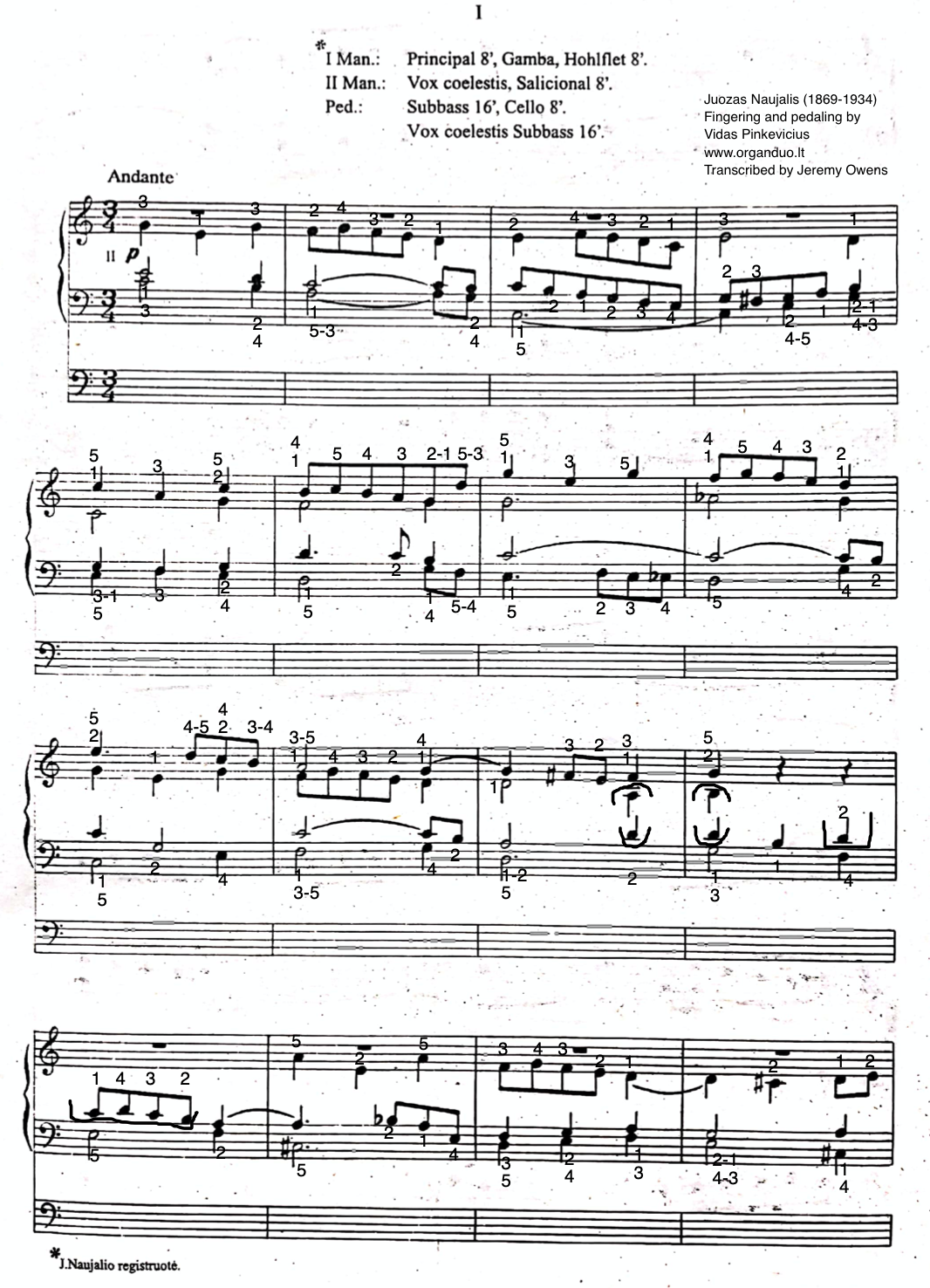
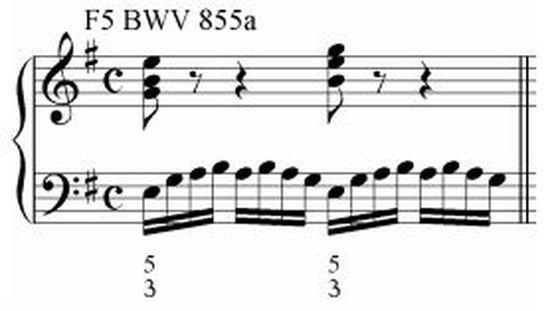
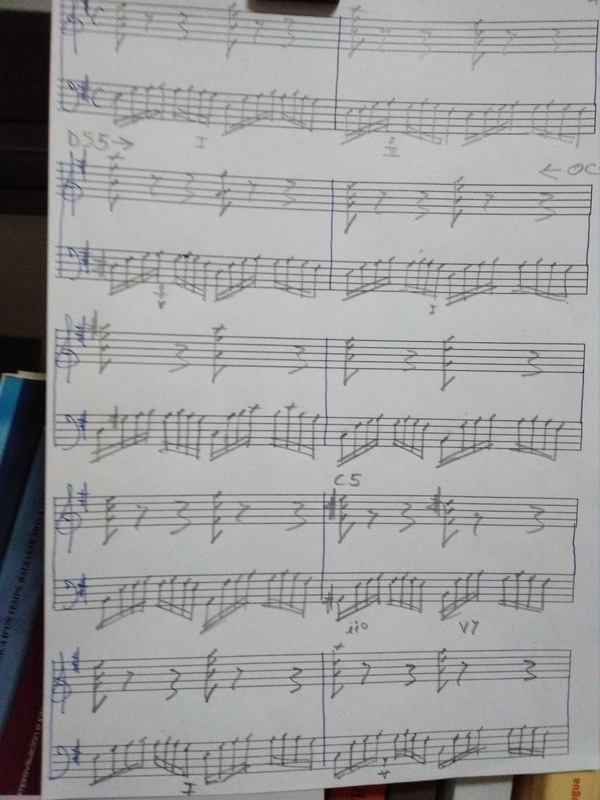
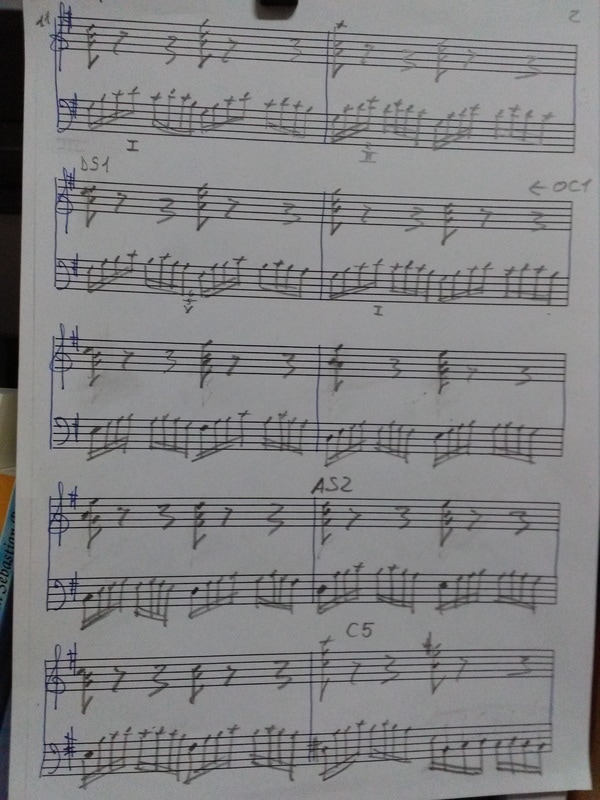
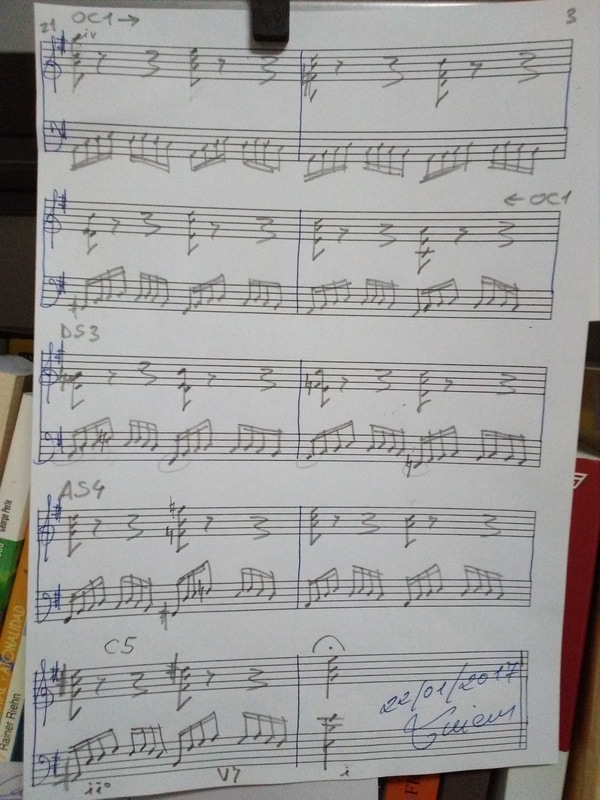
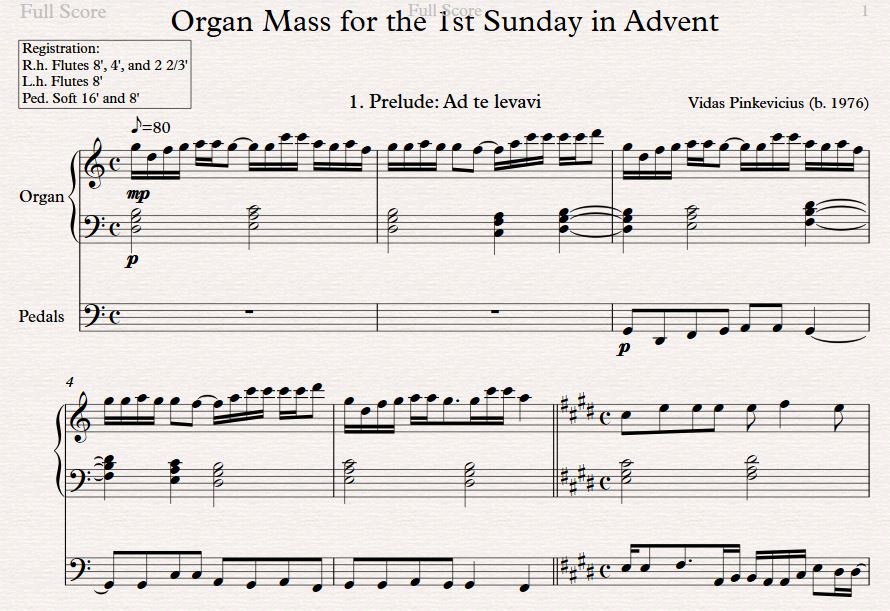
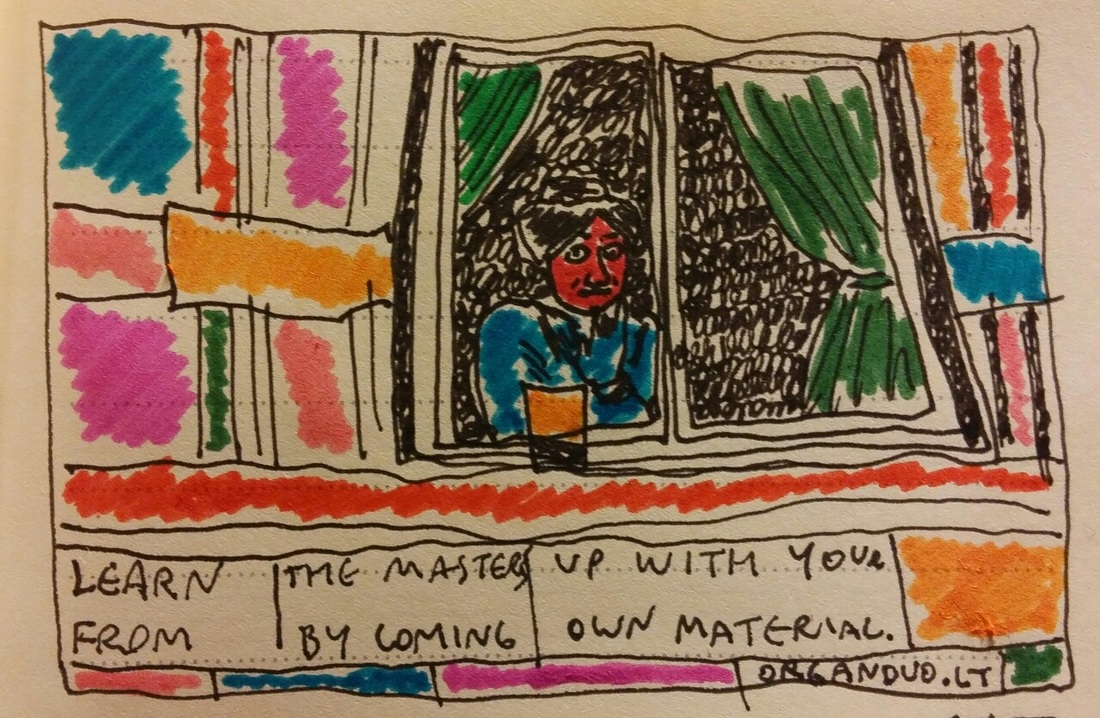
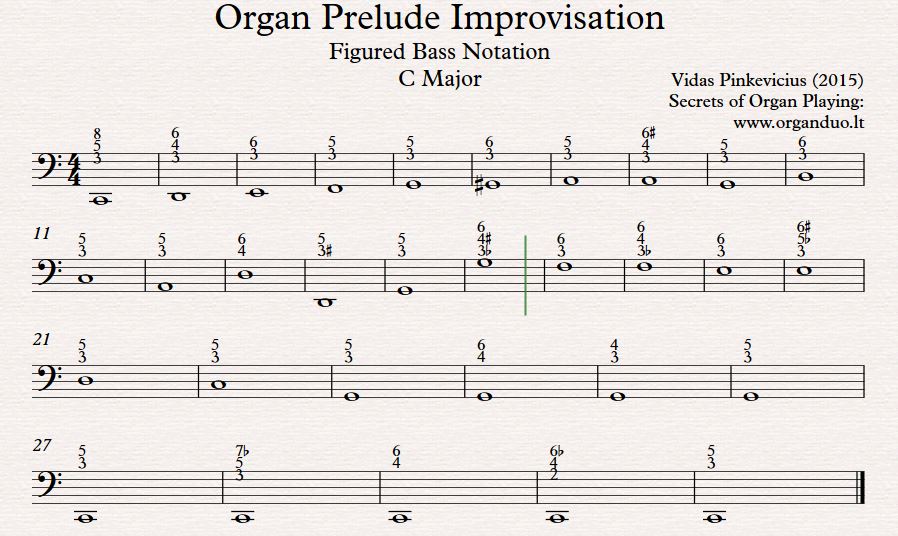



 RSS Feed
RSS Feed